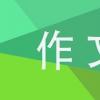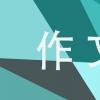Lessons,Learned
时间:2020-06-14 03:30:08 来源:达达文档网 本文已影响 人 
By Sherry Qin
With the international community now facing the dual challenges of containing the novel coronavirus disease (COVID-19) pandemic and restoring the economy and social activities, international cooperation is needed more than ever to strike a balance between the two goals.
However, U.S. President Donald Trump said on May 29 that his country is “terminating” its relationship with the World Health Organization (WHO), days after the White House informed WHO Director General Tedros Adhanom Ghebreyesus that the temporary freeze of U.S. funding for WHO could become permanent.

The U.S. move to quit the worlds leading authority on international health amid the pandemic comes as debates on how the crisis might reshape the economic and political landscape and challenge the China-U.S. relationship have been going on for several months.
Shared problem
Chinas success in curbing the spread of COVID-19 within a short time lay in its containment “in multiple dimensions, not only in hospitals, but also communities,”said Winnie Chi-Man Yip, China Health Partnership Director at Harvard University, at the online Harvard College China Forum in May.
At the forum, public health experts, China-U.S. relations experts and medical company executives examined the two countries diverging approaches to tackling the pandemic and the lessons learned from this health crisis.
In the city of Wuhan, which reported the highest number of infections in China, confirmed patients were treated in hospitals while epidemiological teams traced their close contacts in communities to check their health status. Yip also said both countries revealed a shared problem in healthcare:
the difficulty in getting tested and treatment in the early stage.
John Oyler, Chairman and co-founder of BeiGene, a biopharmaceutical company established in Beijing in 2010, said while the healthcare system in the U.S. works, it is not affordable for most people. “It is a premium market,” he remarked.
In the early stage of COVID-19 in the U.S., people with suspected symptoms did not seek test or treatment for fear it would be expensive. After New York became the epicenter of the outbreak, the shortage of supplies and medical workers limited hospitals capacity to save patients.
Rural areas with scarce medical resources are particularly vulnerable to public health crises. To build a strong primary health system, health professionals must work in small counties and villages. However, according to Liu Yuanli, Dean of the School of Public Health at the Chinese Academy of Medical Sciences (CAMS), disease control is “a peculiar job” that draws attention only when an outbreak occurs. An overhaul is necessary to strengthen the public health system.
Outbreak politics
The U.S. had reported over 106,000 deaths with confirmed cases topping 1.8 million as of June 3. But Trumps response was to hold China responsible. He imposed a ban on foreign nationals who had traveled to China from entering the U.S. on January 31 though The New York Times reported that two separate studies have both shown that the COVID-19 strain in New York primarily came from Europe.
Former U.S. Ambassador to Saudi Arabia Charles Freeman, who was the chief interpreter for then U.S. President Richard Nixon during the latters historic 1972 visit to China, said while the accusation may be ideologically satisfying to Americans,“it has inadvertently set up a contrast between Americas ineptitude in meeting the challenge and Chinas relatively effective performance. The contrast is not between ideologies but between state capacity, leadership, and citizen trust in government. The U.S. now scores poorly on all these factors.”
Stephen Orlins, President of the National Committee on U.S.-China Relations, read Trumps accusation against China as a political tactic to“distract attention” as the U.S. presidential election is approaching. Trumps opponent is no longer the presumptive Democratic nominee, former Vice President Joe Biden, but the novel coronavirus.
Ezra Vogel, a renowned China expert at Harvard University and biographer of Chinese leader Deng Xiaoping, criticized the Trump administration for focusing too much on the election rather than on a long-term strategy. Also, he said there are very few China experts in the current cabinet.
As the confi rmed cases in the U.S. rocketed, Trump was eager to fi nd a scapegoat for “his failure to take early protective measures like expanded testing,” Freeman said.
COVID-19 brought the world supply chains to a halt and sent shockwaves through American consumers who greatly rely on Chinese manufactured goods. Hawkish American politicians grabbed the opportunity to promote economic nationalism and the decoupling between the U.S. and China. Trump also threatened additional tariffs on Chinese exports.
Yet both Freeman and Orlins rated the chance of a full decoupling as very low, given how deeply integrated global economies are.
Preventive detection
Earlier, people thought pandemics were a once-in-a-century event. However, health experts and entrepreneurs have warned of recurring pandemics in the future.
“Its not about if it will happen again, its when,” said Lee Ligang Zhang, CEO of iKang Healthcare Group, a Chinese private preventive healthcare provider.
Anthony Fauci, Director of the U.S. National Institute of Allergy and Infectious Diseases, said a second wave of COVID-19 cases could hit the U.S. as early as this fall as people increasingly try to resume regular life and stay-at-home orders are gradually lifted.

Liu from CAMS said it is critical to develop more intelligent detection systems based on electronic medical records, which gather data from daily practices. China plans to build a cross-sector surveillance system that not only tracks humans but also animals, he said.
Rising above the political discord, scientists from China and the U.S. have teamed up to investigate the origin of COVID-19. Lu Jiahai, Vice Dean of the Public Health School of Sun Yat-Sen University in Guangzhou, Guangdong Province in south China, told the Global Times that his team, which specializes in emerging infectious diseases (EID), is working with Columbia University scientists since 2018 to track different types of EIDs. They turned to COVID-19 research in early February.
Besides cooperation in academia, Freeman said the unprecedented health crisis highlights the dire need of cooperation between the worlds two largest economics rather than playing the blame game.



